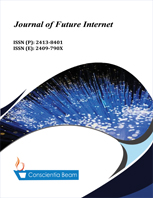Analysis of Cyber Attacks on Load Frequency Control in Smart Grid
DOI:
https://doi.org/10.18488/journal.102.2019.31.12.19Abstract
Smart Grid has gained tremendous technology momentum over the past few years. The data and cyber security of the smart grid face severe challenges and has gained significant importance. This paper addresses the reliability of smart grid by examining their own importance and the effect of cyber-attack during sudden load changes in frequency disturbing aspects. Moreover, it also introduces a solution approach for stabilizing the system. Using the continuous power flow approach with static var compensator (SVC) and static synchronous compensator (STATCOM), maximum load ability of the load buses is determined. The stable limit of speed control for load frequency control (LFC) and integral controller gain for automatic generation control (AGC) is extracted from their characteristic equations to evaluate the effect of cyber-attack on power systems. Simulations are conducted to demonstrate the frequency variations and oscillations of the power system, depending on the nature of cyber-attack (positive biased or negative biased attack). Finally, to eliminate these oscillations, a feedback LFC block with a three-input shift is proposed.

